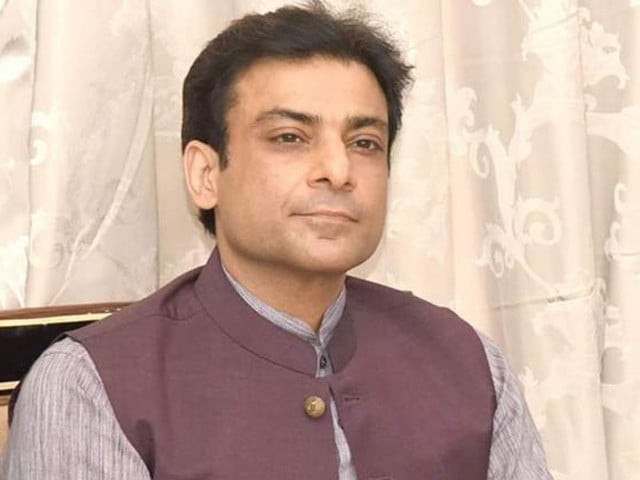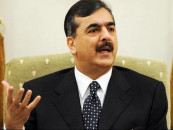'SC's Article 63-A order not applicable to Punjab CM election'
Hamza says apex court's interpretations not retrospective, requests LHC to dismiss plea challenging his election as CM

The Pakistan Muslim League-Nawaz (PML-N) on Monday denied the retrospective effect of the Supreme Court’s interpretation of Article 63-A of the Constitution on the chief minister’s contest held on April 16, while the PTI maintained otherwise.
On behalf of CM Hamza Shehbaz, a fine of Rs.100,000 imposed by Chief Justice Lahore High Court (LHC) Muhammad Ameer Bhatti in the previous proceeding over not complying with the court’s order was submitted. CJ Bhatti had also imposed the same amount of fine on the Punjab government, deputy speaker and others. The court had sought their replies in the said petitions but they had not submitted which irked the CJ Bhatti.
On May 25, the high court had imposed a fine of Rs100,000 on Hamza, the Punjab government, Punjab Assembly Deputy Speaker Sardar Dost Muhammad Mazari and others for not complying with LHC orders.
Punjab Chief Minister Hamza Shehbaz submitted his response to the LHC requesting it to dismiss the pleas, with costs, challenging his election as the Punjab chief minister.
As the proceedings commenced today, CJ Bhatti questioned whether or not the apex court’s interpretation had a retrospective effect. To which Elahi’s counsel, barrister Ali Zafar, argued “yes the SC’s interpretation has retrospective effect”. He also gave different citations wherein the decisions had a retrospective effect
The chief justice further asked whether the SC’s short order states that the vote of defecting members will be counted or it says otherwise if voting is pending.
Barrister Ali Zafar’s argument revolved around the point that the SC’s interpretation of the article applies to past decisions and added that it has a retrospective effect.
The CJ asked if there is a punishment for those who voted against the party line, however, the Constitution does not mention punishment for an individual who comes to the office through such votes. The PTI’s counsel argued that both parties should have the same punishment.
The court then adjourned the proceedings by May 31 (tomorrow).
Read PTI to challenge Hamza’s election as Punjab CM
In his written reply, Hamza prayed that the election of the chief minister was held in accordance with the Constitution and law, in light of the orders of the high court and before the interpretation of Article 63-A by the Supreme Court.
Therefore, the SC’s interpretation would not affect the said elections, maintaining that the apex court’s decision was not retrospective.
“The investigation into the election of the Chief Minister by former Governor Omar Cheema was illegal and the Secretary Assembly also has no authority to inquire into the election,” the reply further stated. “Petitions against the election of the Chief Minister should be dismissed with costs,” the Punjab CM maintained.
The Punjab government also submitted a reply to the court order wherein it said that the court had been requested not to make the fine a part of the record as it was a matter of employment of officers.
The court accepted the petition of the Punjab government's counsel.



















COMMENTS
Comments are moderated and generally will be posted if they are on-topic and not abusive.
For more information, please see our Comments FAQ